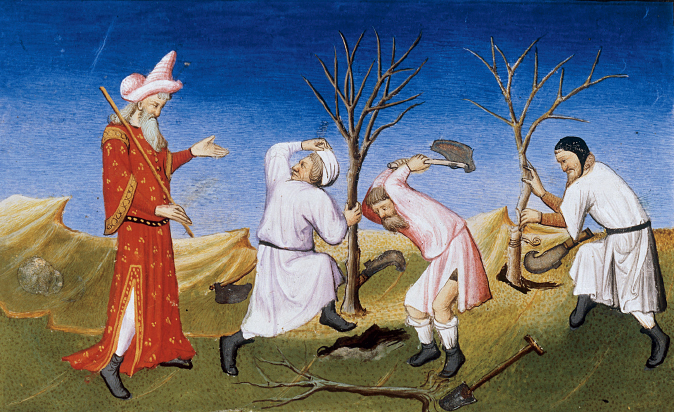How did the Mongol conquests facilitate the spread of ideas, religions, inventions, and diseases?
TTHE MONGOL GOVERNMENTS DID MORE than any earlier political entities to encourage the movement of people and goods across Eurasia. With these vast movements came cultural accommodation as the peoples of Eurasia learned from one another. This cultural exchange involved both physical goods and the sharing of ideas, including the introduction of new religious beliefs and the adoption of new ways to organize and rule the Mongol Empire. It also facilitated the spread of the plague and the unwilling movement of enslaved captives.

Planting TreesThe illustrations in early copies of Marco Polo’s book show the elements that Europeans found most interesting. This page illustrates Khubilai’s order that trees be planted along the main roads. (Illumination from Le Livre des Merveilles du Monde [Travels of Marco Polo], by the Paris studio of the Boucicaut Master, c. 1412/Bibliothèque Nationale, Paris/akg-